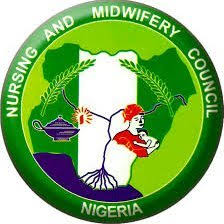As Nigeria grapples with a nationwide nurses’ strike that began at midnight on July 29, 2025, the country’s healthcare system teeters on the brink of collapse. The National Association of Nigerian Nurses and Midwives (NANNM) launched a seven-day warning strike after the federal government failed to respond to a 15-day ultimatum demanding better wages, improved working conditions, and the creation of a dedicated nursing department. While government hospitals discharge ICU patients, cancel surgeries, and postpone life-saving procedures, a lesser-discussed crisis is unfolding: private hospitals, often seen as a safety net, are buckling under the strain, revealing their alarming inability to cope with the surge in demand.
The strike, which affects all federal medical centers, teaching hospitals, specialist hospitals, and primary healthcare centers, has left public healthcare in disarray. Dr. Royal Laurel, a prominent voice on X, highlighted the chaos noting, “Practically all governemnt hospitals are discharging patients… The hospital cannot function without NURSES!” This disruption has forced desperate patients and their families to turn to private facilities, a shift that has exposed the sector’s deep-seated vulnerabilities.
Private hospitals, while remaining fully staffed as per Africanews reports, lack the bed spaces, personnel capacity, and infrastructure to handle the influx. With Nigeria’s hospital bed-to-population ratio standing at a mere 0.9 per 1,000 people—far below the World Health Organization’s recommended 3.5—overcrowding is already a chronic issue. The sudden redirection of patients from public to private facilities has pushed this problem into a critical state, with emergency units overwhelmed and waiting times soaring.
Data from a 2018 study published on PMC underscores the pre-existing shortage of hospital bed capacity in Nigeria, with only 19,907 beds available nationwide and a turnover rate of 99.7%. The current strike has amplified this scarcity, as private hospitals, which cater to a wealthier segment of the population, were never designed to absorb the volume of patients typically served by the public sector. Trade.gov notes that the government’s ambitious plan to build 10,000 primary healthcare centers (PHCs) aims to serve 100 million Nigerians, but with funding constraints, the private sector has been thrust into an unplanned and unsustainable role.
Compounding the issue, private hospitals often rely on the same pool of healthcare workers affected by the strike. While nurses in public institutions are on the picket line, those in private facilities are stretched thin, with many facilities reporting staff exhaustion and an inability to scale up operations quickly. Aisha Yesufu, a notable activist has called for urgent government intervention, warning that the combined health crisis, alongside Nigeria’s ongoing hunger and starvation affecting 4.41 million children (per Action Against Hunger, 2023), could lead to catastrophic outcomes.
The current crisis echoes past healthcare worker strikes in Nigeria, where preventable mortality rates have spiked by 20-30% during such disruptions, according to World Health Organization estimates for low-income settings. The brain drain of nurses to high-income countries, with 1 in 20 Nigerian nurses working abroad, has long weakened the system, as noted in a 2017 Human Resources for Health study. Private hospitals, often owned by doctors who benefit from public sector strikes, have historically filled gaps but lack the systemic support to handle a national emergency of this magnitude.
Interviews with private hospital administrators, as reflected in online discussions, reveal a grim reality. Bed shortages, inadequate diagnostic equipment, and a lack of specialized staff—issues already documented in tertiary healthcare centers—have rendered many private facilities unable to cope. For instance, the planned 12 diagnostic centers and four cardiac catheterization labs under the Ministry of Health’s collaboration with the Nigerian Sovereign Investment Authority are still in the procurement phase, offering no immediate relief. Patients requiring intensive care or complex surgeries are left with few options, with some reportedly turned away due to capacity constraints.
The Nurses' demands, including mass recruitment and enhanced hazard allowances, highlight the root cause: a healthcare workforce stretched beyond its limits. Without addressing these issues, the reliance on private hospitals as a stopgap measure is a recipe for disaster. Social media reactions underscore public frustration, with Peter Obi urging the government to prioritize nurses’ welfare to avert a broader health catastrophe.
As the strike enters its third day, the spotlight must shift to the private sector’s fragility. While government hospitals bear the brunt of the walkout, private facilities’ inability to absorb the overflow threatens to widen health disparities, particularly for those who can ill afford private care amid Nigeria’s economic challenges. The government must act swiftly—meeting the nurses’ demands, accelerating infrastructure projects, and integrating private and public efforts—to prevent a dual collapse of the nation’s healthcare system.
The stakes are high. With 3 million people displaced by violence and malnutrition rates soaring, Nigeria cannot afford to let its healthcare infrastructure fail. The nurses’ strike is a wake-up call, but the private sector’s struggle to cope is a stark reminder that no part of the system can stand alone in this crisis.




